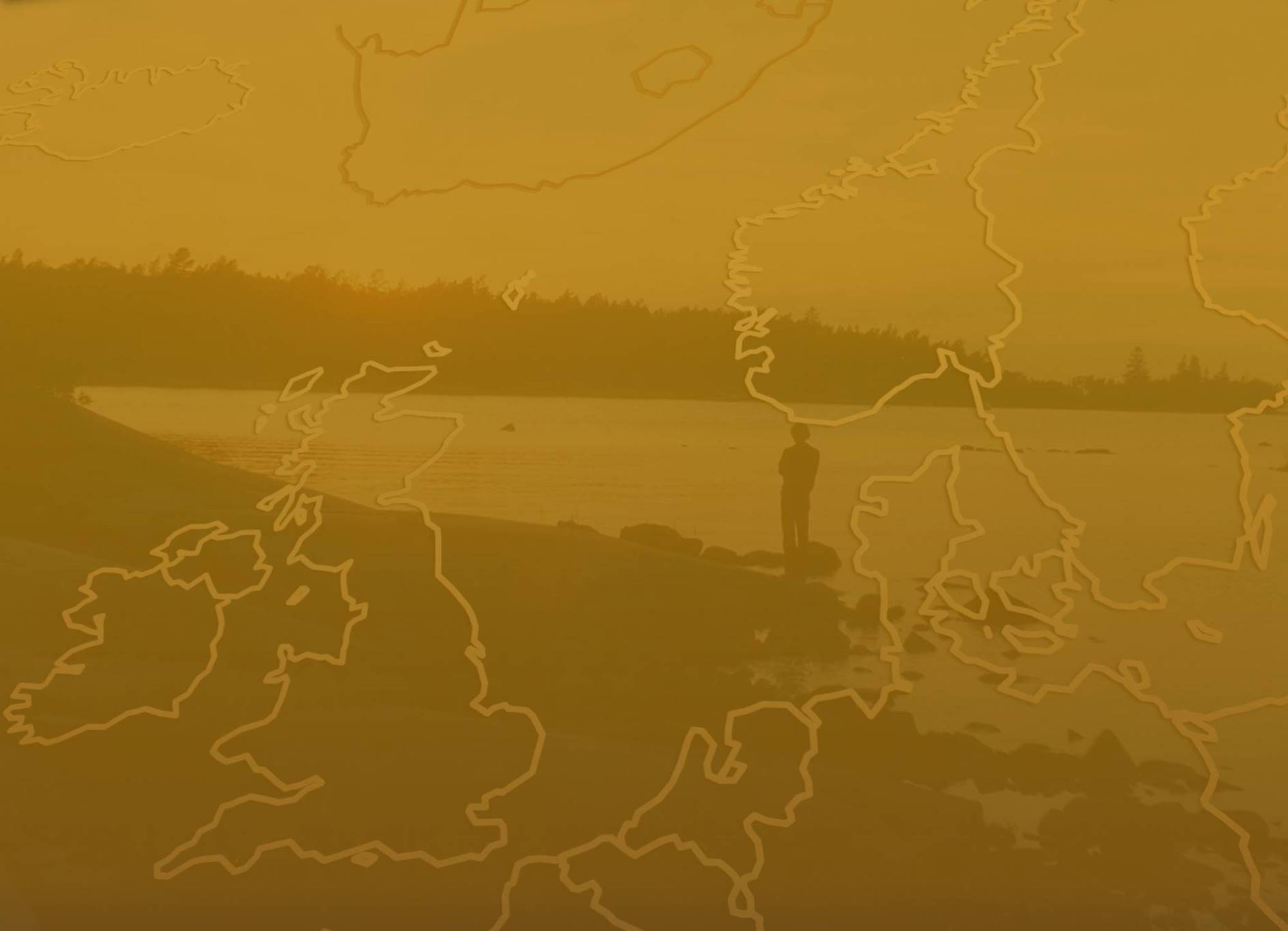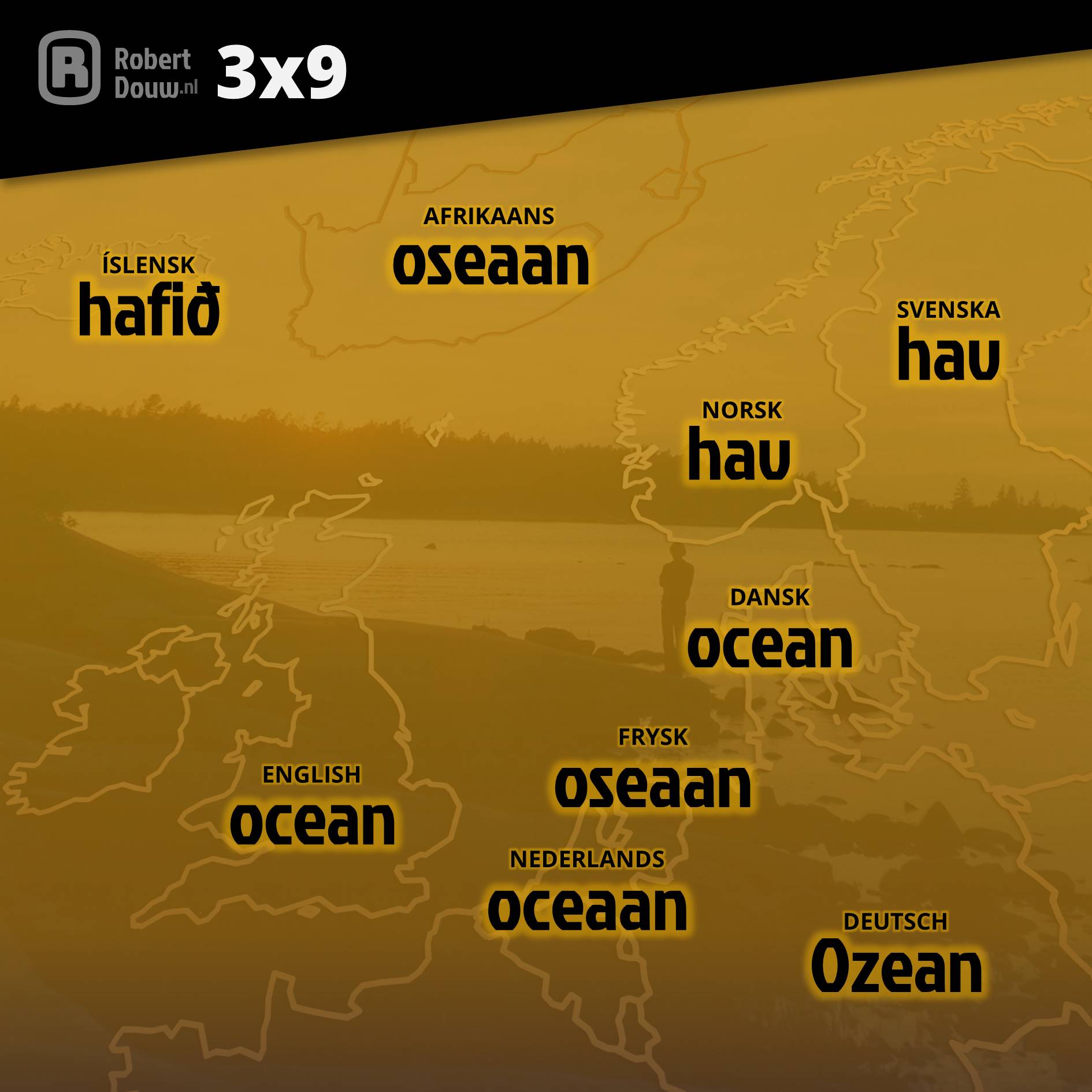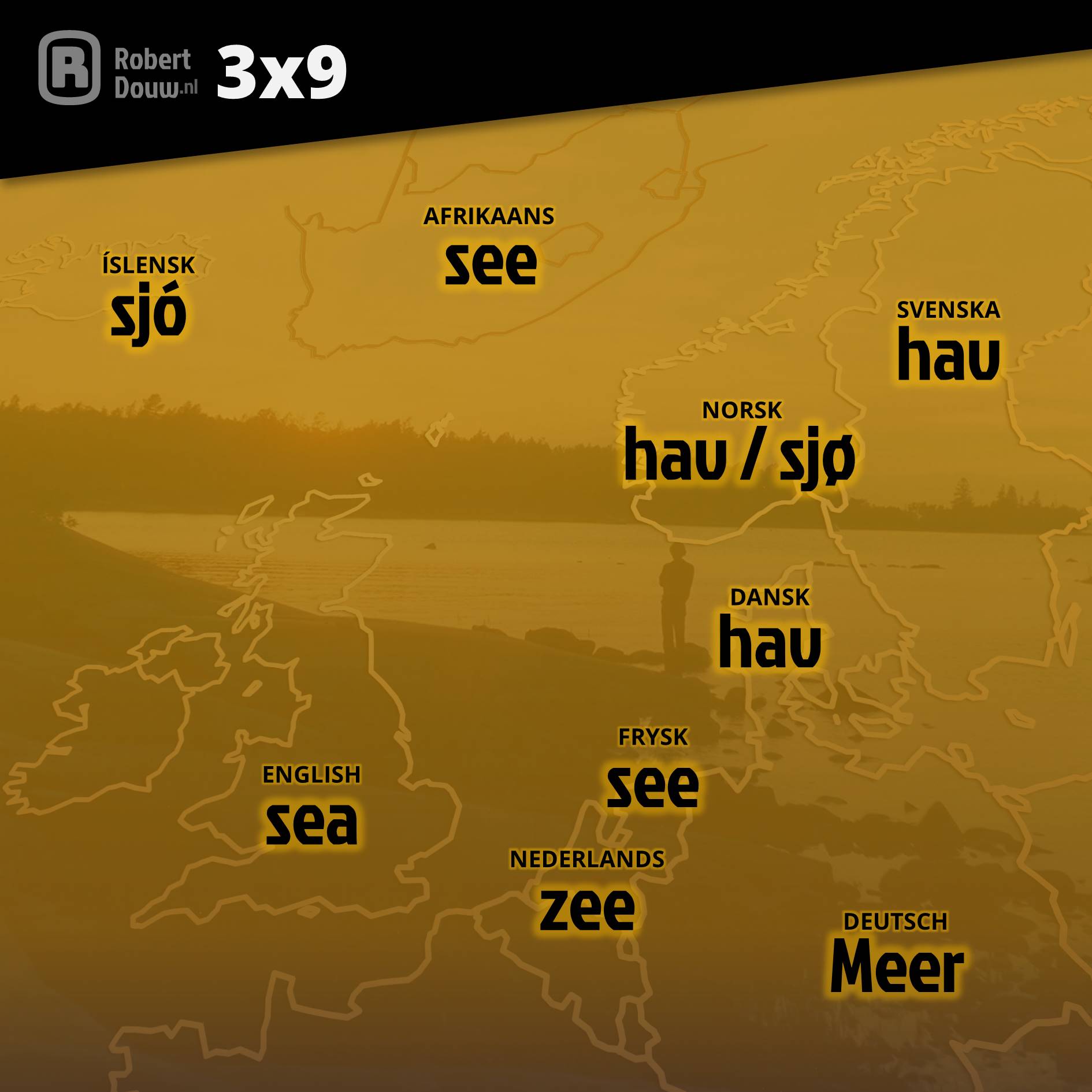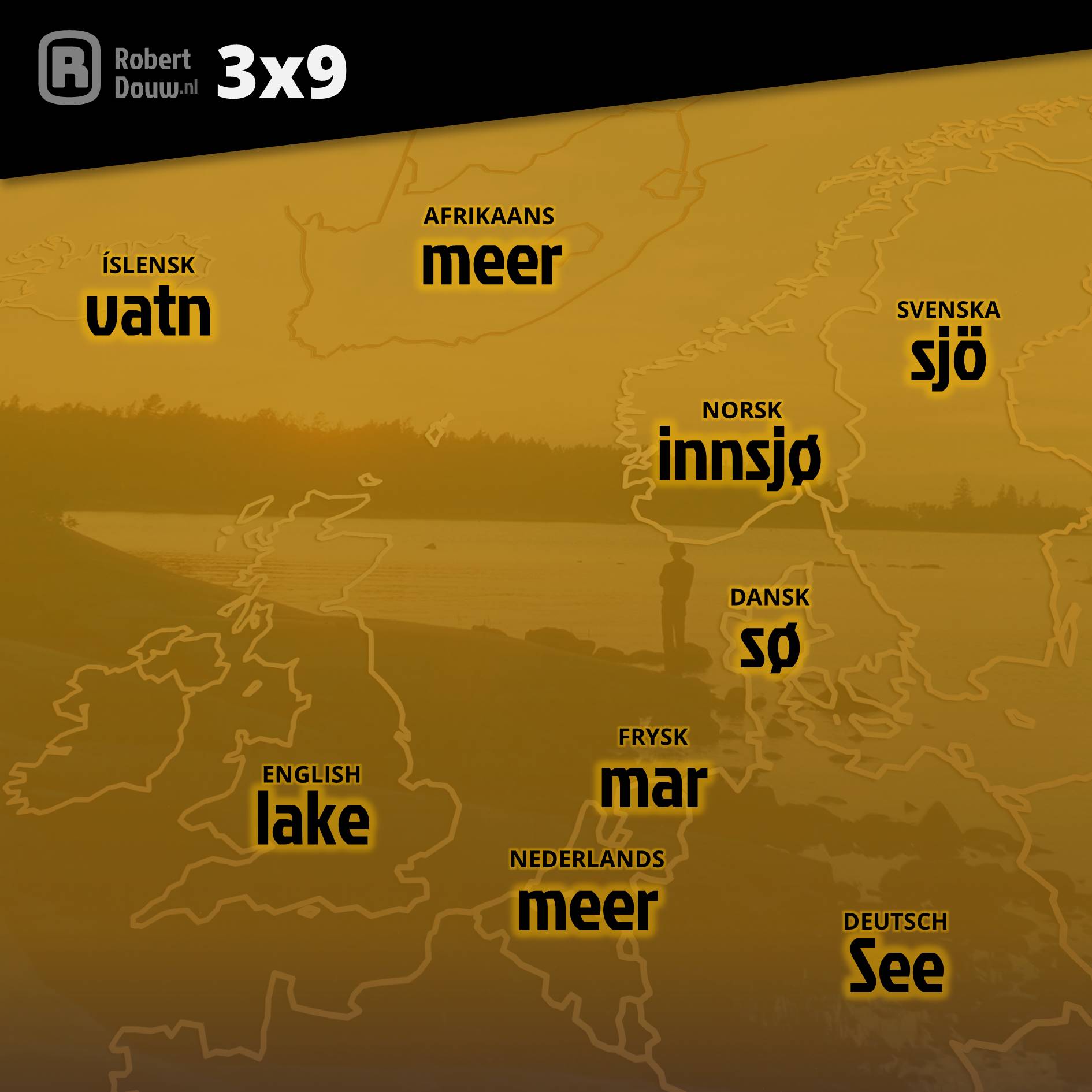THREE TIMES NINE
ocean, sea, lake
Linguistics
| 27-01-2022
A classic example of false friends – words that look or sound similar, but have different meanings – between Dutch and German are zee and meer, or Meer and See. Still, they were probably "good friends" at one time. That has everything to do with the knowledge about the world at the moment the words for great waters were created.
The text continues below the images.
ōkeanós
At a time when only Eurasia and Africa were known in Europe, it was thought that all that land formed a disk around which a ring of open water flowed. A kind of infinite river that separated the land from the heavens, which was called ōkeanós in Greek. It is not known for certain where Greek got that word from. It may have originated from a compound of Sumerian words that would have meant something like "water between land and sky." In Afrikaans, Danish, German, English, Frisian and Dutch, a variant of ōkeanós is still used to indicate the largest open waters or "world seas".
hafan
The Norwegian and Swedish word hav and Icelandic hafið probably go back to Proto-Germanic *hafan. In English the word haff appears to exist, at which I read on etymonline that it is possibly related to the word haven. That sounds logical to me, certainly in the Dutch sense of "mooring place for ships", harbour or port in English. Hav appears to (also) mean sea in Swedish, Norwegian and Danish – unfortunately I don't speak those languages, so I'm basing this on Google Translate. A sea is also a large amount of salt water, so I don't find it very surprising that the Swedes use the word for both ocean and sea.
saiwa
This brings us to the words zee, see, sea, sjø and sjó. The origin of those words is not certain as well. It is possible that the words go back to Proto-Germanic *saiwa-. What does seem to be certain, is that the words zee and meer have long been used interchangeably. In most languages, the large amount of salt water became zee and the smaller amount of fresh water became meer. Yet the meaning "still fresh water, lake" is probably the oldest meaning of zee. Conversely, in the Old Germanic languages meer meant not only "inland sea, large freshwater pool", but also "sea". In (British) English the word occurs as mere (in poetic language). The common English word is lake, which is related to loch as in Loch Ness. Incidentally, in Germany you sometimes come across Meer in the sense of "lake" and See in the sense of "sea" - there too the words were once used interchangeably.
At a time when only Eurasia and Africa were known in Europe, it was thought that all that land formed a disk around which a ring of open water flowed. A kind of infinite river that separated the land from the heavens, which was called ōkeanós in Greek. It is not known for certain where Greek got that word from. It may have originated from a compound of Sumerian words that would have meant something like "water between land and sky." In Afrikaans, Danish, German, English, Frisian and Dutch, a variant of ōkeanós is still used to indicate the largest open waters or "world seas".
hafan
The Norwegian and Swedish word hav and Icelandic hafið probably go back to Proto-Germanic *hafan. In English the word haff appears to exist, at which I read on etymonline that it is possibly related to the word haven. That sounds logical to me, certainly in the Dutch sense of "mooring place for ships", harbour or port in English. Hav appears to (also) mean sea in Swedish, Norwegian and Danish – unfortunately I don't speak those languages, so I'm basing this on Google Translate. A sea is also a large amount of salt water, so I don't find it very surprising that the Swedes use the word for both ocean and sea.
saiwa
This brings us to the words zee, see, sea, sjø and sjó. The origin of those words is not certain as well. It is possible that the words go back to Proto-Germanic *saiwa-. What does seem to be certain, is that the words zee and meer have long been used interchangeably. In most languages, the large amount of salt water became zee and the smaller amount of fresh water became meer. Yet the meaning "still fresh water, lake" is probably the oldest meaning of zee. Conversely, in the Old Germanic languages meer meant not only "inland sea, large freshwater pool", but also "sea". In (British) English the word occurs as mere (in poetic language). The common English word is lake, which is related to loch as in Loch Ness. Incidentally, in Germany you sometimes come across Meer in the sense of "lake" and See in the sense of "sea" - there too the words were once used interchangeably.
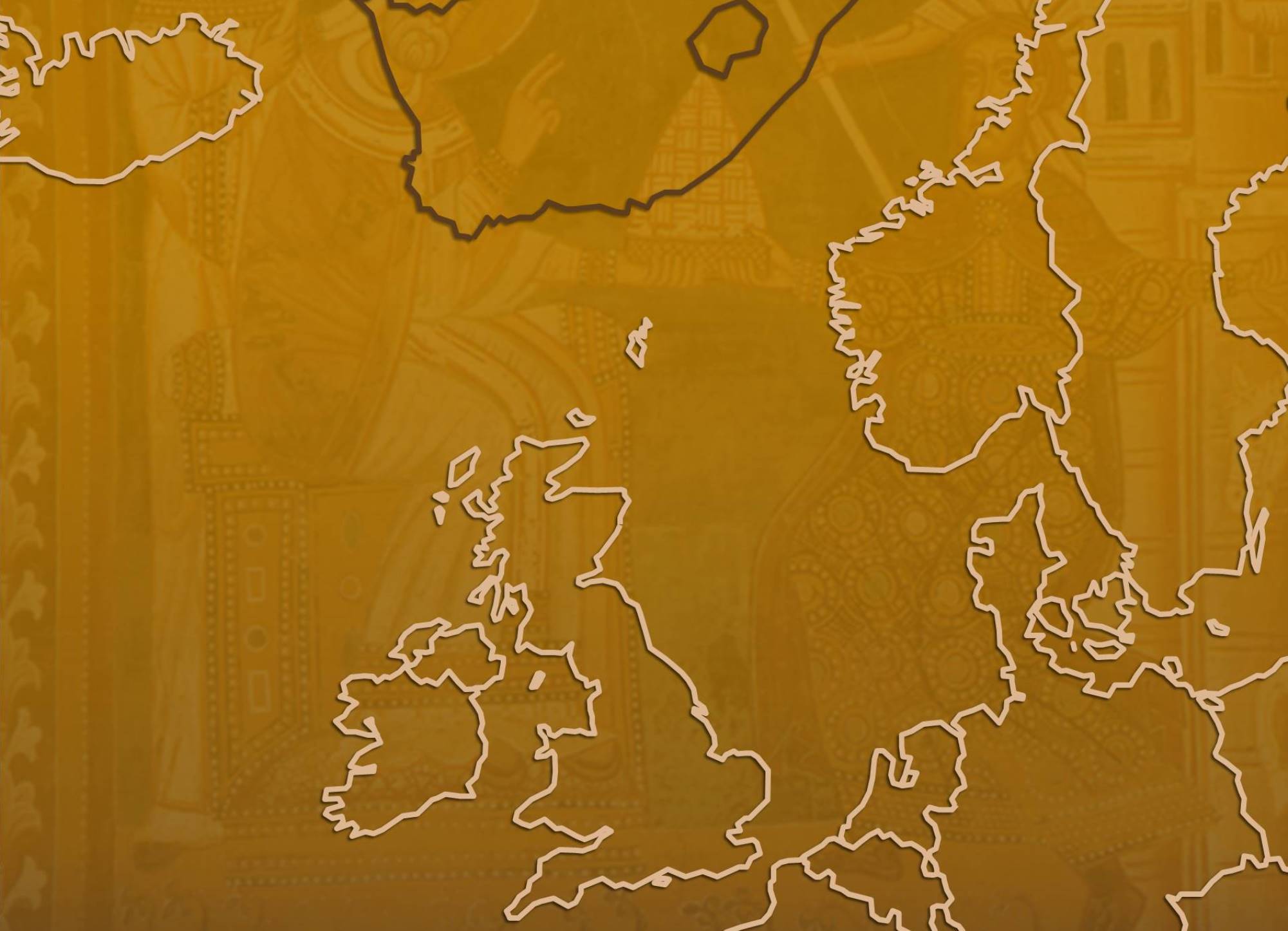
THREE TIMES NINE
December, Christmas, New Year's Eve
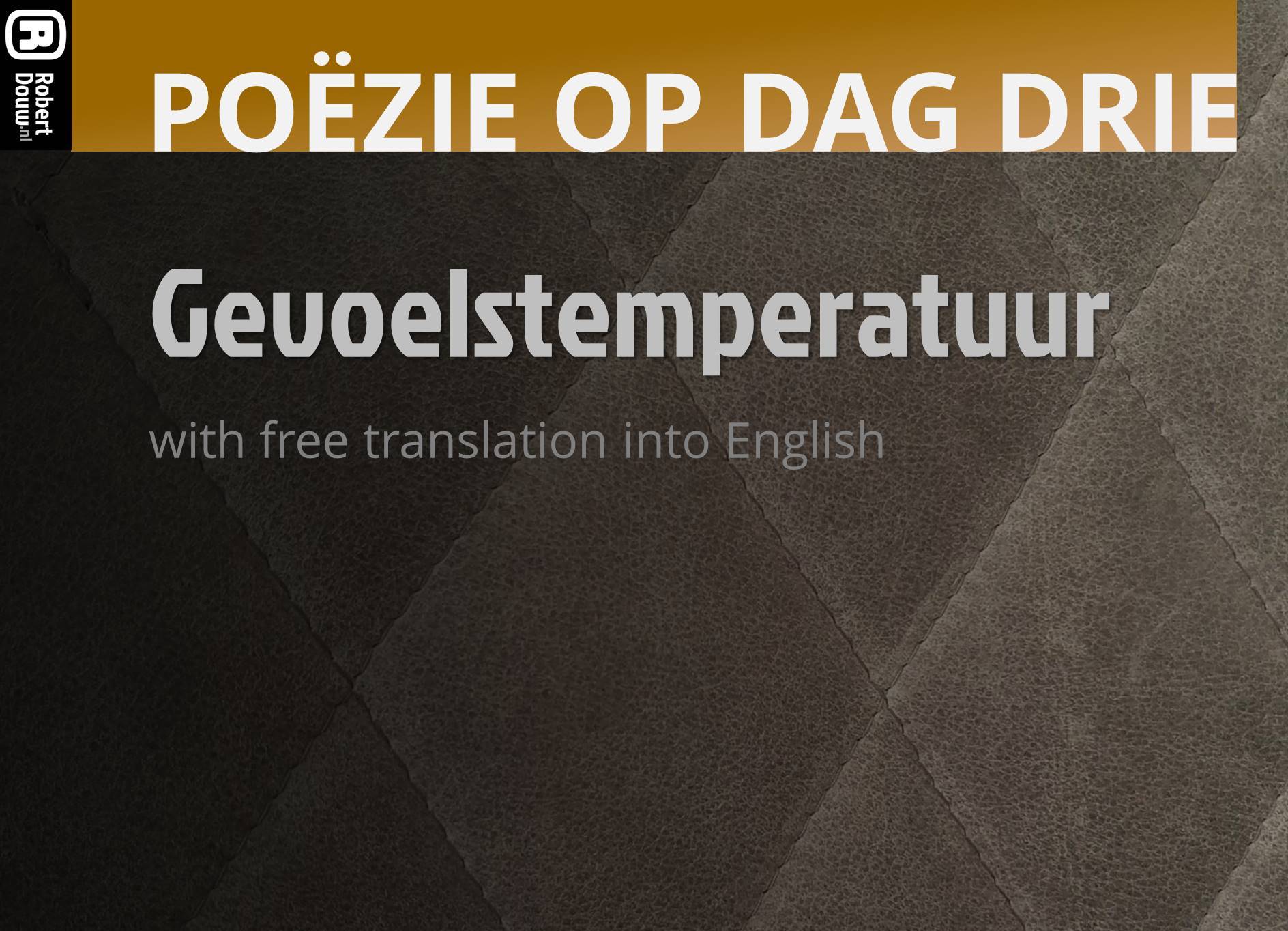
POETRY ON DAY THREE
Perceived temperature
LINGUISTICS
Click here for an overview of everything in the Linguistics section.
